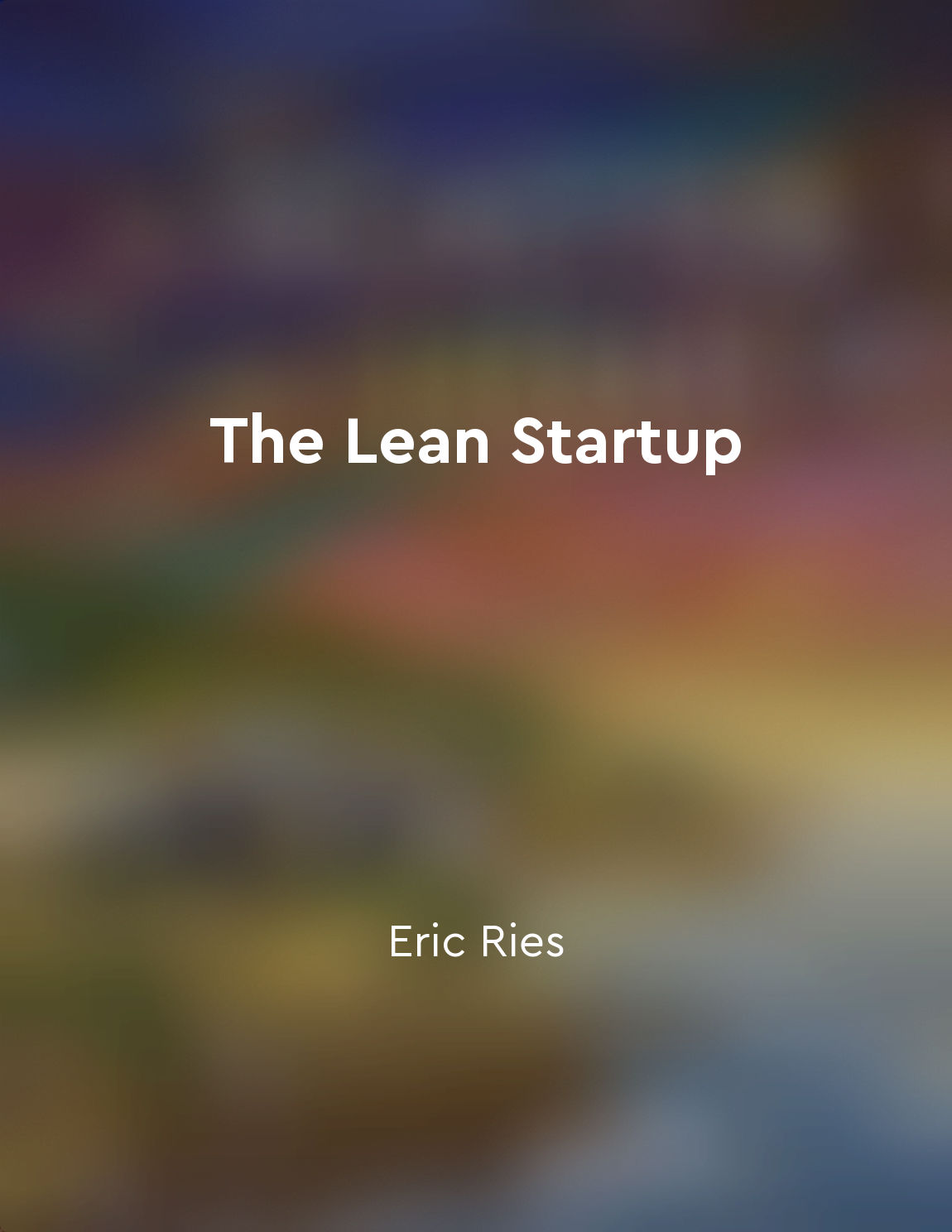Audio available in app
Validate assumptions through rapid experimentation from "summary" of The Lean Startup by Eric Ries
The concept of validating assumptions through rapid experimentation is at the core of the Lean Startup methodology. Instead of relying on guesswork or intuition, entrepreneurs are encouraged to develop hypotheses about their business ideas and quickly test them in the real world. By conducting small-scale experiments and gathering data, they can validate or invalidate their assumptions and make informed decisions based on actual evidence. Rapid experimentation involves creating a Minimum Viable Product (MVP) - a basic version of the product or service that allows the team to test key assumptions with real customers. This iterative process helps entrepreneurs learn quickly and adapt their strategies based on feedback. By embracing a mindset of continuous learning and improvement, startups can avoid wasting time and resources on ideas that are unlikely to succeed. One of the key benefits of rapid experimentation is the ability to fail fast. Rather than investing months or years in building a product, entrepreneurs can test their hypotheses within weeks or even days. If the experiment fails, they can pivot to a new direction without significant losses. This agile approach enables startups to stay flexible and responsive to changing market conditions.- Entrepreneurs can reduce the risk of failure and increase their chances of success. Through rapid experimentation, they can gather valuable insights, iterate on their ideas, and ultimately create a product that meets the needs of their customers. This iterative process not only improves the chances of building a sustainable business but also fosters a culture of innovation within the organization.


